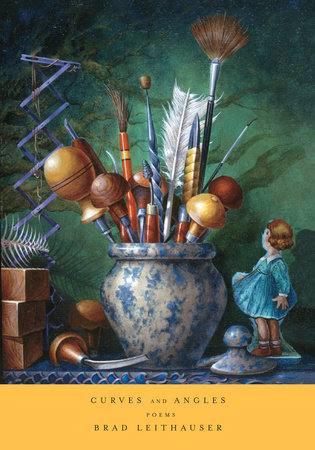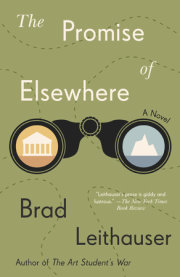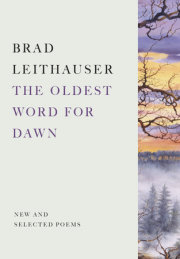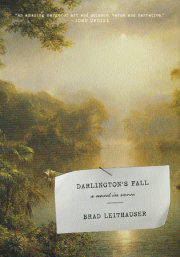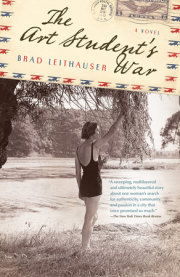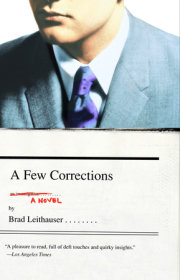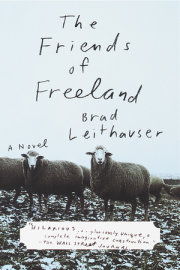NOT LUNAR EXACTLY
(Detroit, 1948)
New, and entirely new to the neighborhoodÉ
One August day, it came to their own street:
the Nutleys brought home a television!
Nights now, the neighbors began to meet
more often than before, out walking,
walking past the Nutleys, who, on display
behind their picture window, sat frozen
in their chairs, watching their television, which lay
off to the side, just out of view,
so you couldn’t make out what
it was they were watching but only
them watching, the four Nutleys, in a blue
glow that was lunar but
not lunar exactly.
That was the summer we all
watched the Nutleys–no,
we all watched “The Nutleys,”
which was the one great show
of the summer, it ran for weeks,
with its four silent stars
behind glass, until nights went cold
and damp and we turned to our cars
if we ventured out after dark,
and then–three in a row–
the Daleys, the Floods, the Markses
took the plunge, they brought home the glow,
and the Nutleys, suddenly,
belonged to a new community.
FROM HERE TO THERE
There are those great winds on a tear
Over the Great Plains,
Bending the grasses all the way
Down to the roots
And the grasses revealing
A gracefulness in the wind’s fury
You would not otherwise
Have suspected there.
And there’s the wind off the sea
Roiling the thin crowns of the great
Douglas firs on the cragged
Oregon coast, uprooting
Choruses of outraged cries,
As if the trees were unused
To bending, who can weather
Such storms for a century.
And–somewhere between those places,
Needing a break–we climb out stiff
From our endless drive to stand, dwindled,
On a ridge, holding hands,
In what are foothills only because
The neighboring mountains are
So much taller, and there are the breezes,
Contrarily pulled, awakening our faces.
SON
Memory buries its own,
And of what now forever must be
The longest day of his life
What mostly remained was a blur
Under too-bright lights–so he
Could scarcely tell if the things
Sharpest in his mind were
Nothing but fantasies, sewn
Afterwards, out of grief,
And guilt’s imaginings.
Yet it seemed memory called up
(After the interminable birth,
As his finger stroked the arm
Of a child who would not last
Even one whole day
And all of its time on earth
Ministered to by vast
Machines that couldn’t mend the harm
In a single transcription slip
In reams of DNA)
A look so haunted, so
Haunting, he would not confess
(Not even later, to his wife)
How it stayed with him, on him: the slow
Flicker in a watery eye,
The mute call–through all
The exhausted hopefulness
The condemned come to know
In the end–from animal to animal,
Imploring,
Please save my life.
NORTH-LOOKING ROOM
In a seldom-entered attic
you force a balky door,
disclosing a room made brilliant
by an orange tree whose branches bear
no fruit but maple leaves;
We’re in New England, after all.
Though rippling foliage fills
the pane, the flush that tints the wall
will last a week or two, no more.
*
And this conception, if consoling,
of a high, untenanted room
lit solely by a tree
houses as well–at least for those
who’d sidestep round the fear
that in the give-and-take of calls
to answer, calls to make,
we lose the light most dim, most clear–
a reprimand no breeze can shake.
OVER LABRADOR
When miles of perfect whiteness
Gave way to a whiteness below
(Snowed-under hills of a cloudlike brightness
Under cloudbanks heaped like snow),
By either light
How fulfilling to contemplate
Domains so evenly claimworthy–
Unpeopled, complete.
Copyright © 2006 by Brad Leithauser. All rights reserved. No part of this excerpt may be reproduced or reprinted without permission in writing from the publisher.

